Charles Pakana (VAN):
As most listeners are aware, over the past several months, there’s been any number of misleading information that’s been coming from conservative media, conservative elements of community, and of course, conservative politicians about the Victorian Treaty process. We’re not going to belabor the sources of all that information right now or misinformation, I should say. So, what we’ve decided to do on Victorian Aboriginal News is have a look at each of those pieces of misinformation, or more importantly, questions that people have, legitimate questions that people have about treaty and really dive down to the truth of the matter.
This series of podcasts is actually going to be done in partnership with Victorian Aboriginal News’s key partner and that is Reconciliation Victoria. And joining me today is the communications lead from Rec Vic, as it’s more popularly and affectionately known, Anna Van Vliet. Anna, thanks for coming onto the program with me today.
Anna Van Vliet (Reconciliation Victoria):
Thanks so much for having me, Uncle Charles.
Charles:
Okay, let’s dive into it. What do you do?
Anna:
At Rec Vic?
Charles:
Yeah.
Anna:
My role in communications looks a little bit of everything every day. So, there’s some engagement, there’s some events. It’s a lot of messaging and partnering, so working with yourself, working with the Treaty Authority and the First Peoples’ Assembly of Victoria, really seeing where reconciliation, how it looks in the state and what we can do to keep that movement going.
Charles:
And that obviously entails, as you mentioned, working with the Treaty Authority, working with the First Peoples’ Assembly, that is entailing more and more that concept of treaty and the treaty process here in Victoria, I would assume.
Anna:
Definitely. It definitely is. It’s something that everyone is talking about. All of our stakeholders want to know about treaty, where it’s up to, what’s going on. And so, we really see our role as a partner into helping doing that education, working with our stakeholders and taking lead from the authority in the Assembly. And we’ve got great relationships with them there, taking their lead and seeing how we can best aid the work that they’re doing.
Charles:
So, as the communications lead, I would assume that you’re hearing a fair bit of questioning from the members because you’ve got about 31, 32 groups across Victoria, Local Reconciliation Groups?
Anna:
Yeah. So, the Local Reconciliation Groups are a fabulous network. They’re all across Victoria, a lot in the metro regions, but we’re seeing more and more pop up regionally. A lot of those, yes 23, the campaigning groups that have kept that momentum going, but then also ones that have been around 10, 20, 30 years.
Charles:
Of course.
Anna:
So, they’re everywhere across the state and they’re really our people on the ground. They’re our community groups, mostly run by volunteers, some working with their local councils. And it’s a fabulous network, and they’re our key stakeholders that we hear those comments back from.
Charles:
Well, let’s get into it. Just so the audience is aware, Anna and I have sat down for a day or so beforehand and gone through the absolute massive questions that we’re receiving at Victorian Aboriginal News and Reconciliation Victoria’s hearing from its membership and from the general community out there. We’re only going to look at about four of them today. Anna, what was the first one that we came up with?
Anna:
So, Uncle, I want to ask you, treaty is often a misunderstood word, but what does that mean in the context of the work being carried out in Victoria?
Charles:
Yeah, this is something that I discussed in depth with Professor Cheryl Saunders and the University of Melbourne in a recent interview. And I think that was one of the most insightful interviews that I’ve done when it came to just the concept of treaty. You can, depending on the interpretation of the word, you can have a treaty within a country. Where people tend to get a bit stuck is the literal definition according to, let’s say for example, the Department of Foreign Affairs and Trade of treaty.
Now, as far as DFAT is concerned, and bear in mind DFAT is an outward-looking government organization, so it’s looking to have relationships, trade agreements and trade treaties with international partners. So, from DFAT’s perspective, then a treaty is an international agreement between two states. But a treaty, as we discovered with Professor Saunders, is simply, and I loved her definition of this, it’s a solemn agreement. That’s it. So, yes, you can have a solemn agreement as, for example, Victorian Aboriginal News has with Reconciliation Victoria. If we wanted to be a bit strange about it, we could say, “Well, between Rec Vic and Victorian Aboriginal News, we have a treaty.” It’s simply the use of a word.
What worries me a bit or concerns me a bit is when people on social media and everywhere else are saying, “Well, you can’t have a treaty within a country. And therefore, this whole treaty process is wrong.” My question is, so what’s the motivation? What’s making you so negative about this? Is it the fact that your anti an agreement with Aboriginal Victoria and with traditional owner groups, or are you simply hung up on the word “treaty”? Either one of those is a whole range of other matters that we need to concern ourselves about.
Obviously, when it comes to both traditional owner groups and then the statewide treaty or solemn agreement, whatever you want to call it, there are going to be different things that’ll be discussed and negotiated. So, I think if people were to be scared about treaty or anti-treaty right now, given that we haven’t even started negotiations, my question is what are you concerned about? What are you scared about? What are you fighting against? We don’t even know what’s going to be in that treaty.
Anna:
I think it’s so important that we don’t get hung up on that word. And I think, at Rec Vic, we’ve seen a lot of, call it, confusion, misinterpretation about the word in community and how it crosses over with last year’s referendum.
Charles:
That leads in, I assume, to the next question.
Anna:
At Rec Vic, we’ve seen confusion, misinterpretation, you could call it in the community, about how it crosses over with last year’s referendum. Can you tell us a bit more?
Charles:
Anna, right from the start, we need to appreciate the fact that the 2023 referendum, the 14th of October 23 had nothing at all to do with treaty. That was 100% to do with the request for an enshrined Aboriginal and Torres Strait Islander Voice to Parliament within the constitution. That’s it. That really is the matter of it.
What concerns me, and you’ll notice throughout these responses that I’m going to be giving you in this and future episodes is that there’s a great deal of concern that I have because what does concern me in this situation is that conservative media, and we made mention of this in a recent podcast episode where Peta Credlin from Sky News was joined by Jacinta Price, and time and time again, these two people kept on saying, “Well, we voted no last year” when they were talking about the Victorian Treaty process, a process about which they’ve demonstrated they know nothing at all about at all the exact wording of the referendum question.
And it really pays to just be aware of this, is a proposed law to alter the Constitution to recognize the First Peoples of Australia by establishing an Aboriginal and Torres Strait Islander voice. That was the question. It had nothing at all to do with treaty or truth-telling or Makarrata. It was simply that voice. That was it. So, Anna, when people constantly come up, and there’s so much of it, if you get onto pretty well any social media at all when it comes to this, you will see people constantly echoing this thing, “Well, we voted on this in 2023.” No, we didn’t, and it’s a huge concern because that’s what’s going to be carried across.
Now, the other thing in line with that is, I’ve seen this on number of occasions, is that people have said, “Well, you know what? When it comes to treaty, then we’ll simply vote no.” Well, the reality is that it’s not going to vote. This is not something that’s going in the constitution. And as Professor Gunstone, your co-chair at Rec Vic has said before, you don’t need to go to a referendum to change the state constitution anyway. That’s it. It’s only at the federal level.
But that’s not the situation here. The fact is that the treaty process, which as I’ve said before, is currently not even being negotiated yet, is not going to go to a vote. It is not the voice. It is not truth telling. It is a totally different matter. So, to all those people that think that they’ve cast their vote on this different matter, just look at the matter before you right now, which is treaty or solemn agreement making.
Anna:
And Uncle, help me with this because we’re really coming back to the Uluru Statement: voice, treaty, truth. That went side by side and that’s everything that was up in lights around the time of the referendum. And now, we’re at this point that was nationally. Now, we’re looking statewide. We’re looking to Victoria.
Charles:
Yeah, exactly.
Anna:
It’s a treaty for Victoria and so, help me out. Sometimes, we hear about the First Peoples’ Assembly being that representative voice.
Charles:
Exactly. This is-
Anna:
And is that where some confusion is coming from as well maybe?
Charles:
I don’t necessarily know if it’s a bit of confusion. I think it’s a point worthy of clarification though, that we do have a voice already in Victoria. Now, these are 33, I believe, with the inclusion now of the Wemba-Wemba traditional owner group that’s been recognized recently. So, 33 representatives, all democratically elected either by their traditional owner group or by the broader Aboriginal and Torres Strait Islander community that are advocating for certain causes yet to be determined in treaty negotiations with the state government and also, ultimately, with local governments and even organizations. That’s another matter within the treaty negotiation framework.
But yeah, we do have a voice. And frankly, from what I’ve seen and being very close to that voice for the past six years, it’s a voice, it’s a body, it’s an organization that is already proving itself to be highly effective. And what’s important, Anna, is that I’ve yet to find anybody who’s been able to say, “Well, this is how it’s disrupted my life. This is how it’s made taxes go up. This is how it’s made things get worse in Victoria” because it hasn’t.
Now, I don’t want to belabor the 2023 referendum and the voice, but the constant reassurance from the Yes Campaign was that the voice will hardly even be noticed by the majority of Australian people. The vast majority of Victorian people have never heard of the treaty process or the First Peoples’ Assembly of Victoria. So, it’s not a disruptive organization. It is representing us at a state level, and you’re pointing out that it’s state rather than federal is crucial to this point, and it comes back to the previous one. Look, that referendum last year was a federal matter. This treaty process is state. Different governments, totally.
Anna:
Completely different governments. And we’ve heard a lot as well whilst we’re talking about the State of Victoria, that treaty is a benefit for all Victorians.
Charles:
Absolutely.
Anna:
How might this look though?
Charles:
There’s any number of ways. One of the things that excites me is that it can look to address particular financial drains on government. Now, the Lowitja Institute released last year a bit of amazing research, and this is going back a bit to the voice, but it released some research last year that if a voice were to get up, it would represent a saving to the federal government in hospital care alone of $10 billion. That’s B-I-L-L-I-O-N, not million.
Anna:
It’s an insane number.
Charles:
That’s just because you’re affording Aboriginal people the right to self-determination, to have a voice in matters that impact them directly. So, imagine if we took that at a Victorian level. All of a sudden, you’ve got a solemn agreement between the First Peoples’ Assembly of Victoria and the state government, which affords the government that voice of First Nations people when it comes to health issues. The savings are going to be phenomenal just there.
According to recent research from Sentencing Victoria, which is a Victorian government body to deal with justice, the incarceration rate for Aboriginal people and Torres Strait Islander people is on the increase here in Victoria. Yet the incarceration rates across the state for all adults is actually decreasing. And I think in 2022, ’23, it decreased by about 4.7%. But in that decreasing number, there was an increasing percentage of Aboriginal and Torres Strait Islander people. I read somewhere yesterday that it was costing, and it’s an arbitrary figure so it may not be correct, but around about $145,000 a year to incarcerate a single person.
Anna:
Wow.
Charles:
Now, can you imagine that if First Nations people were to be involved through a solemn agreement with the state government to work in this area and to lend their own expertise, imagine the financial benefits to the state if that number of Aboriginal people and people being incarcerated overall dropped. All of a sudden, for every single Aboriginal and Torres Strait Islander person that was kept out of the system because of a solemn agreement, all of a sudden the impact on the state government has been reduced by whatever it is, but let’s say $145,000 a year. It doesn’t take long to recognize that the savings are significant. Now, that’s just then in health, in hospital care and in the justice system.
Anna:
Just two sectors.
Charles:
Extrapolate that right across all those areas of state government, and just from a financial perspective, it’s phenomenal. Now, we haven’t looked at other areas such as cultural development, environmental management. And this is what frustrated me during the referendum and frustrates me even now, that right across Victoria, our traditional owner groups such as the Gunditj Mirring, the Eastern Maar, the Taungurung, the Gunaikurnai, all these traditional owner groups right across the state are doing incredible work in flora and fauna management. Amazing work.
We’ve got the Taungurung, the Barengi Gadjin Land Council, just two of the registered Aboriginal parties in Victoria doing incredible work to protect the dingo. Now, this is an apex predator. And we’re coming out with an interview on this in a couple of weeks’ time, but if you remove an apex predator from an ecosystem, then it’s a pretty tragic system. The whole system just falls down. So, these TO groups have been doing amazing work in here. Now, once we get to a treaty or a solemn agreement-making process between the state government and these individual traditional owner groups, then you’re going to see stronger benefits for the environment. Everyone, once again, benefits.
So, a lot of the negative things that we’re hearing, and we will yet to hear, I don’t see any validity in them. And we’ll deal with them, not now, but when they do come up, we’ll deal with them. But all I can see for all Victorians is benefits. And I will say before we get onto the next question, Anna, in every conversation I’ve had either with the state government, with Minister Hutchins, with the Treaty Authority, with the First Peoples’ Assembly of Victoria and its individual members right across the state, everybody has always provided the caveat, we are Victorians. We’re Aboriginal people, but we’re Victorians. We have family who are non-Aboriginal. We want to make sure treaty works for them as well, and that’s a really important thing.
Anna:
It’s really powerful. All right, Uncle, last question for you. It seems that the majority of Victorian, Aboriginal people are supportive of treaty, and I want to know a bit about what it looks like from your perspective as you travel around the state and talk to these communities.
Charles:
I’ve yet to meet, I suppose, over the past two or three years, I’m trying to think if there are any instances where any Mob from anywhere across Victoria has said to me, “I’m against treaty.” I’m just thinking right now, I may have heard some instances where people have been cautious in their approach and said, “Well, look, I’d like to see what’s going to benefit our community and our Mob from a treaty.” But I’ve yet to hear anybody come up to me and say, “Treaty is a crock. Treaty is not going to work. Treaty is only going to benefit,” oh, God, we’re going back once again to the referendum, “the elite Aboriginal” and stuff like that, which is not the case.
So, that question of yours, and I know that’s coming from a couple of Rec Vic people, and I’ve heard it a number of times as well, has really gained a bit of traction since the event a couple of weeks ago on Sky News, once again, going back to Peta Credlin and Jacinta Price. And I don’t like going back to them all that often because it gives them a degree of credibility which, of course, I don’t think they have, but where they said, “Well, there’s only 10% of people who voted or Aboriginal people who voted in the assembly or for the assembly. And therefore, that’s the level of support.” Now, that, once again, concerns me because a lack of people voting doesn’t mean a lack of support.
Anna:
They’re not the same thing.
Charles:
They’re not the same thing at all; are they? Let’s be really frank. A lot of people simply don’t want to vote because they just don’t want to vote. In our community, especially in the outer lying areas and even in the urban areas, there’s an incredible distrust of anything that’s bureaucratic or maybe even smacks of government. So, you will have people who are concerned about getting onto the Aboriginal electoral role.
Now, the figure that Jacinta Price came up with that it was 10% of Aboriginal people who voted, well, we know that to be quite false. During the first election, I’ll be very honest here, during the first election, for the First Peoples’ Assembly of Victoria, it probably was just a bit over 10% of Aboriginal people who had enrolled in this new role, this aboriginal electoral role. Now, a number of things were contributing to that low number. The first one was that many of them thought they were already enrolled because they’d enrolled through the VEC or the AEC, so they may have thought they were already enrolled.
The challenge faced by Commissioner Jill Gallagher, who was the Victorian Treaty Advancement Commissioner in the lead-up and it was her responsibility to develop that aboriginal electoral role, the load on her was phenomenal. And in the short time that she and her team had, it was inconceivable that they were going to even get 40%. As far as I’m concerned, even 30% was a far reach of Aboriginal people in Victoria onto that role. Add on to that, and I’ll probably get a bit of flack over this, the number of people who identify as Aboriginal and Torres Strait Islander but have no connection to community, they may have just to realized, “Well, you know what, Auntie such and such, we’ve always suspected that she had some Aboriginal blood. Therefore, yes, I can identify as Aboriginal.”
All these numbers are being brought into, here’s the greater number, I think it’s 66,000 Victorians are of voting age, which is 15 years and older for the Aboriginal electoral in the 2021 Census. You’re not going to get all of those who are connected within community even know about or interested in the treaty process. Everybody I’ve spoken to right across Victoria, and this is without a shadow of a doubt, is supportive of the treaty process. It’s not to say some are against it. I’m sure there are some against it, and that’s fair enough.
We had people during the referendum, Anna, Aboriginal people and Torres Strait Islander people who were and still are anti the voice. What gets me is why aren’t we allowed to do that? Why aren’t we allowed to have differing opinions within our community without being branded? Well, the majority of, or there’s a groundswell of movement within the community that treaty is no go. Crikey, we only heard from a handful of people in the referendum, Jacinta Price, Anthony Mundine and a handful of others who were anti-voice, and that was enough for the conservatives to get on their high horses and say, “Well, there you go. All these important,” and I wish we could be on camera because I’m using closed quotes, “important Aboriginal people are against it.”
Not everyone’s going to be for it, but I believe given time, and once people see the ultimate benefits to all of Victoria, and I mean all of Victoria, as a result of solemn agreement-making processes or treaty processes, there’s going to be broad support.
Anna:
I’ve got a clarifying question for you, Uncle.
Charles:
Of course, you do.
Anna:
Of course, I do. You know me. The role you’re talking about, the Victorian Aboriginal and Islander electoral role, these are the groups of people that are voting for the elected members-
Charles:
Correct.
Anna:
… of the Assembly. This is what we’re hearing are increasing every year. I think with the First Peoples’ Assembly, their report, it was up by about 15, 16% again. So, it’s rising and rising. But that’s the role, not the Victorian electoral role.
Charles:
Correct.
Anna:
Not the Australian electoral role. We’re not talking the state and government elections. We’re talking about First Nations people in Victoria voting for the Assembly.
Charles:
These are Aboriginal and Torres Strait Islander people, aged 15 years and older, who are entitled to vote for the First Peoples’ Assembly of Victoria. You are quite right. And yes, I think in the last report from the First Peoples’ Assembly of Victoria, it had increased by 16% over the past 12 months. So, there’s that steady, massive increase of people enrolling to vote on the Aboriginal electoral role.
This is not even a role that the government gets to see. We had extensive conversations with Commissioner Gallagher during the lead-up to the first elections about the security of the Aboriginal electoral role, and that is maintained securely by, I don’t know the name of the organization, but I know whenever I’ve tried to get an interview with them, I’ve always been knocked back. That’s how secure they are about this.
But yeah, so if you’re enrolled to vote in a local state or federal election, no, you’re not on the Aboriginal electoral role. That’s a separate process, and that can be very, very simple. You either go along to any number of the First Peoples’ Assembly of Victoria events or get onto their website.
Anna:
Uncle, I don’t know about you, but all my questions currently have been clarified by yourself. There’ll be many more. There’ll be many more down the line.
Charles:
We know of that for sure.
Anna:
And hopefully, we’ll have another yarn about it, and it’s something that Rec Vic’s really passionate about, about teasing these things out and getting those discussions happening. But thank you for the expertise. Thank you for the time.
Charles:
Thanks, Anna. It has been a bit of fun. I’ve been wanting to do this for quite a while. You’re quite right. There are more and more questions coming up either through the Local Reconciliation Group network, always a plug for the LRG network out there. They’re doing fabulous work, as are you guys. And I will say, once again, just in case someone from the government is listening, grossly underfunded work, by the way. Come on, state government, it’s only going to cost you a little bit of money. And let’s be quite frank, Rec Vic is doing a lot of your work for you.
I think given the number of questions that are coming in and the increasing interest and awareness that, unfortunately, non-supporters of treaty are playing to this process, that we’re going to get more and more questions. So, to our audience out there, yes, we’ll be back with Anna and Reconciliation Victoria probably within the next four or five weeks. It’s just going to happen. And also, just so you’re aware, we’re also working with the First Peoples’ Assembly of Victoria. So, as we get into more of the technical questions, we will be getting those checked by all those people.
So, if you do want to ask a question, either get onto Reconciliation Victoria and feed the questions through to them, or get onto the Victorian Aboriginal News website, which is vicaboriginalnews.com.au.


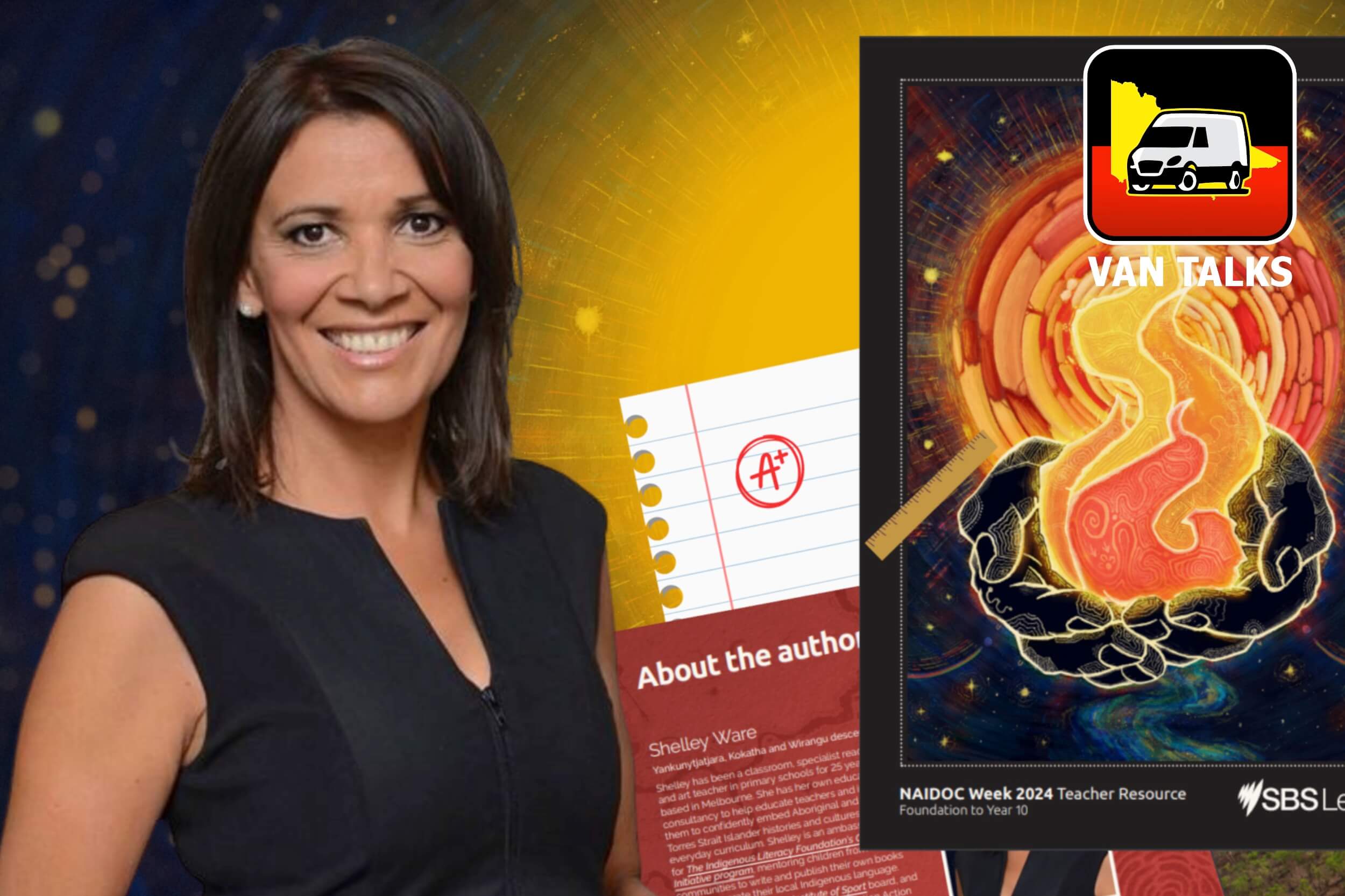
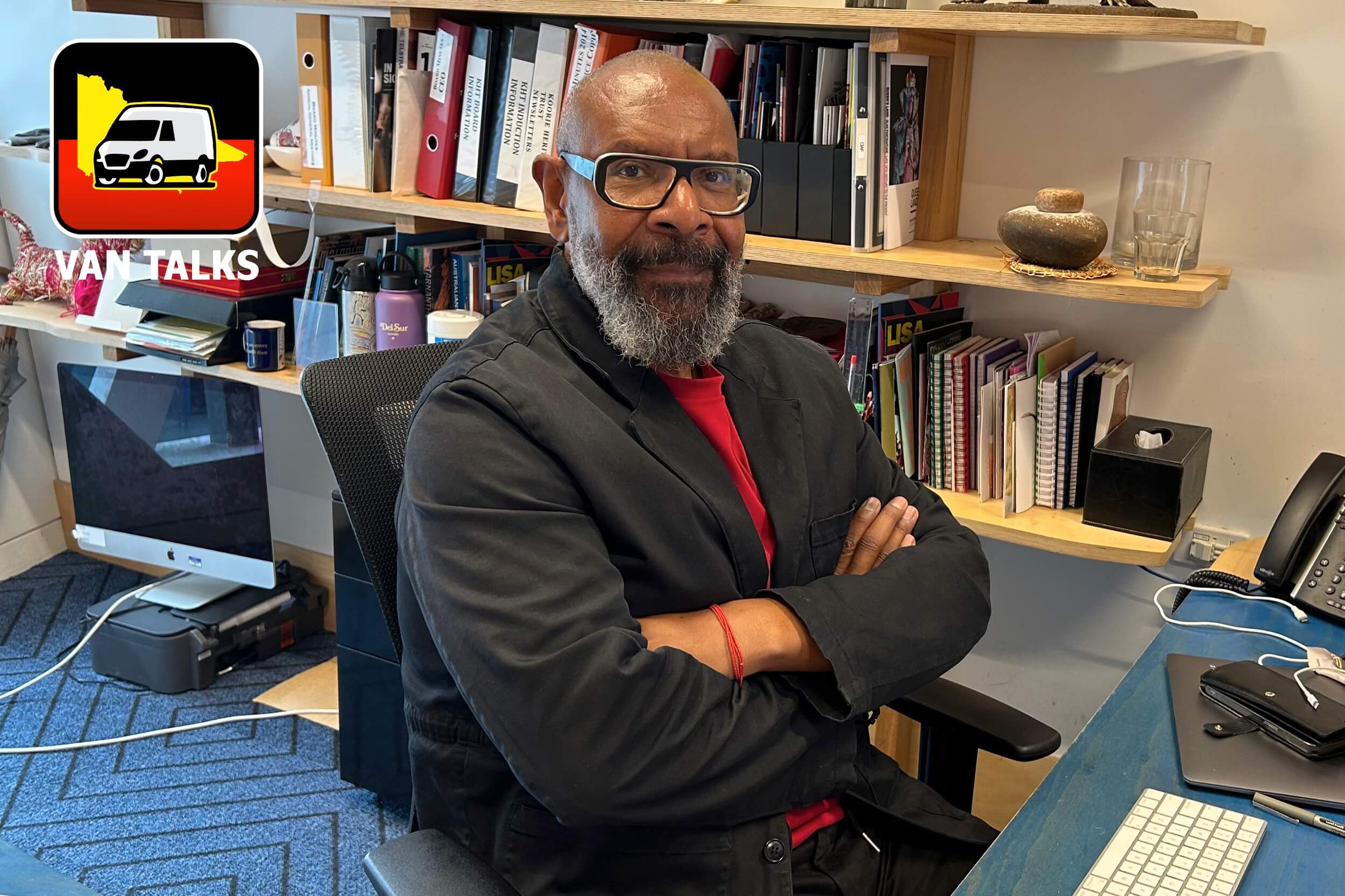
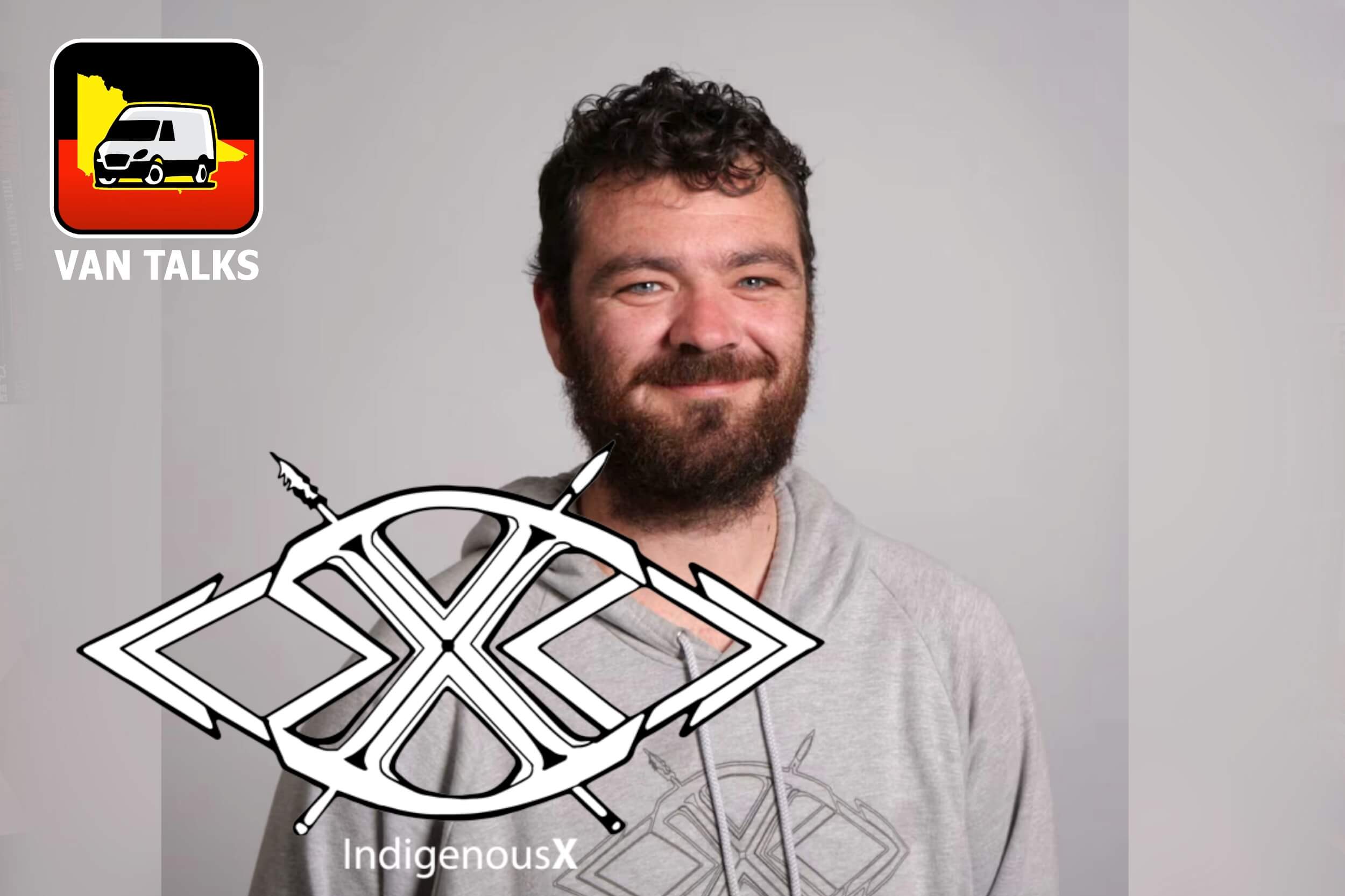
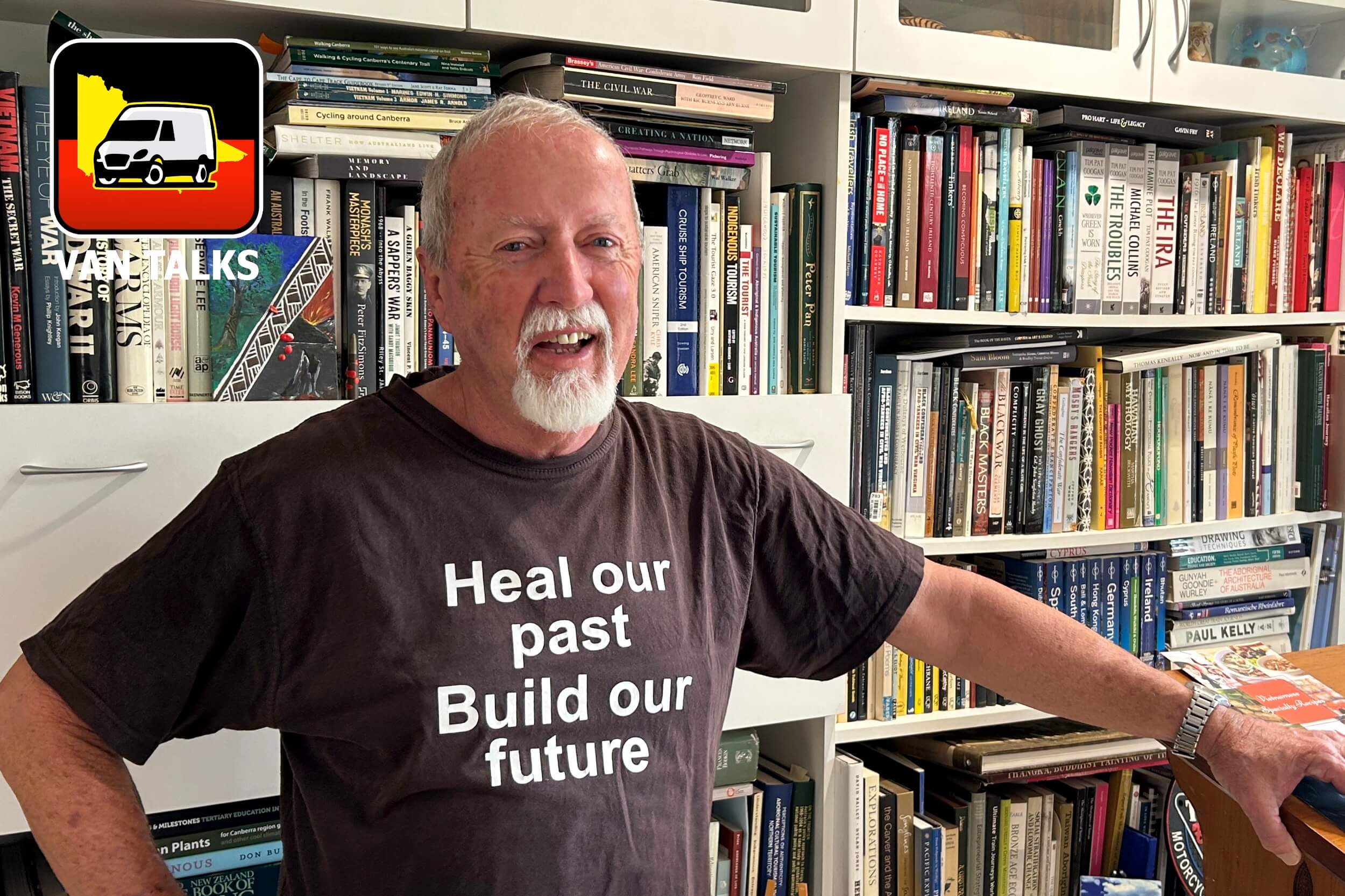
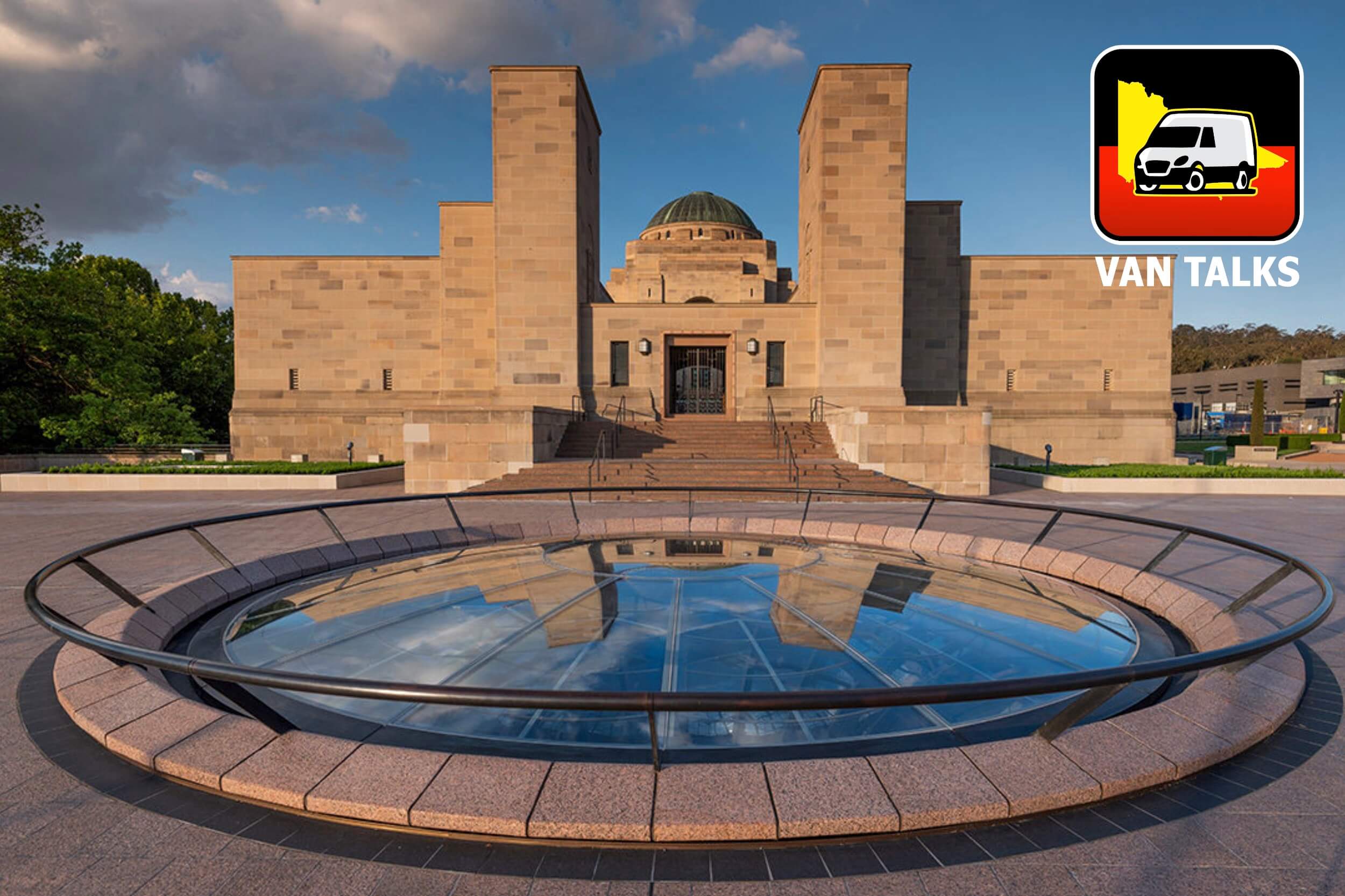

0 Comments